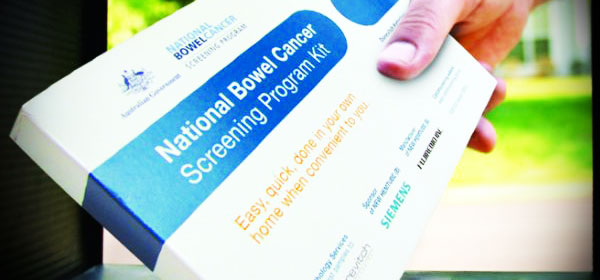Janet has received a do-it-yourself bowel cancer screening kit in the mail and wants to know whether she can rely on it. Dr Troye Wallett offers his advice.
•••
Q. Janet
What is your advice on the at-home bowel cancer test? Can I rely on it?
A. The at-home bowel cancer test is, delightfully, called the Faecal Occult Blood test or FOB. You may have received it in the post as part of the Government’s free screening program. The instructions are on the pack, but basically, you poke your poo with a stick, pop it in a container and send it off in the post. You’re likely to receive a response within two weeks.
The goal of the National Bowel Cancer Screening program is to reduce the number of colon cancer deaths through early diagnosis. But there is a price to pay.
As a result of the screening, more people will be diagnosed with cancer and pre-cancer – and go through the stress and anxiety of the diagnosis and the recommended treatment – yet the disease may never have manifested in a proportion of that group. So is that worth it? I would say ‘Yes’ and the Government obviously agrees, hence the screening program.
Suffering is the price we pay for preventing death. That is true for all screening tests.
Risk factors for colon cancer include:
- being overweight
- physical inactivity
- a diet high in processed meats
- smoking
- aged over 50
- inflammatory bowel disease
- family history of colon cancer
- type 2 diabetes.
The higher your risk of a disease, the more you will potentially gain from a test.
My father died from colon cancer when he was 39 so I am at risk. In my case, the FOB is irrelevant because a negative test is not reassuring enough. I have a colonoscopy every five years. If I was over 50 and mildly overweight due to a dislike of exercise, the FOB would be perfect for me.
If your FOB comes back positive, i.e., blood is found in your faeces, a colonoscopy is on the agenda. If you are unsure of your risk or are concerned in any way, chat to your GP.
Troye is happy to answer your questions. Simply send an email to: newsletters@yourlifechoices.com.au
Dr Troye Wallett is a GP. He is a co-founder and part-owner of GenWise, an ethics-based, purpose-driven mobile general practice which supports health professionals working in aged care.
Related articles:
Elderly ‘at risk’ after surgery
Does it pay to rise early?
Blood pressure link to dementia

